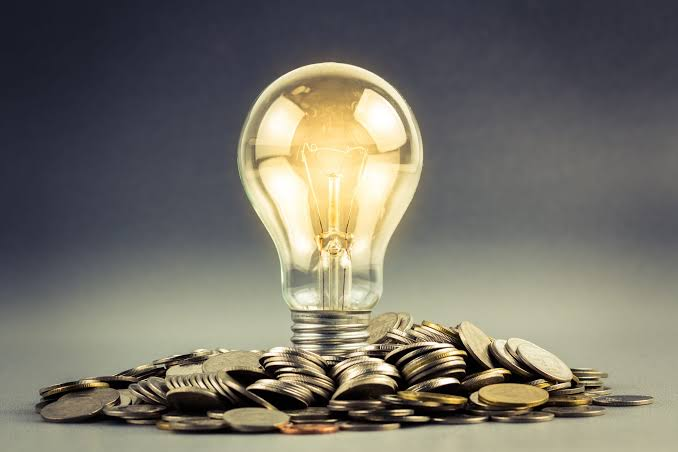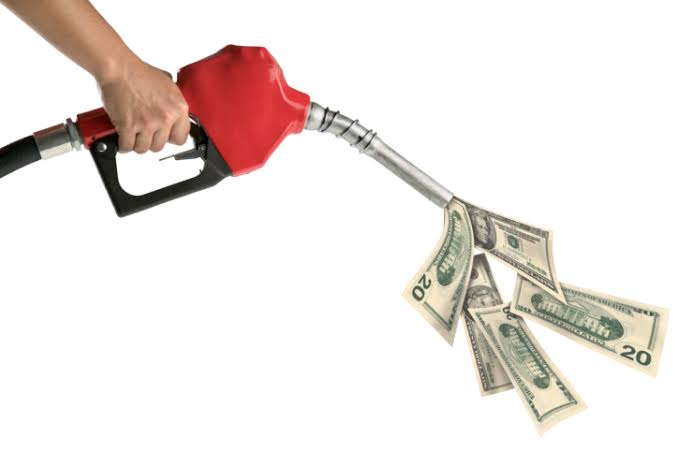Get A Month Ahead of Bills; Prioritize Expenses
Being a month ahead of bills means paying your bills for February with January’s paycheck. It is a method people should practice to have full control of their day-to-day life and manage their spending habits. If one grasps this concept, in no time, they will be able to meet their financial goals and save money. However, the question is, “How to get a month ahead of bills?”
Unfortunately, it’s easy to get behind and eventually start living paycheck to paycheck. When this happens, it will put you at risk of accumulating debt and a poor credit score. The problem with living paycheck to paycheck is you lose the chance to sock away money for emergencies and other necessities, thus, contributing further to the financial crisis. One way to combat this is by implementing a =debt repayment plan= which will help you meet your financial obligations. That said, it is crucial to learn your priorities and know the =importance of an emergency fund=.
In this article, we will discuss =how to get a month ahead of bills=. Also, the advantages of paying your bills before their due date and the distress you will go through if you cannot pay on time.
Get A Month Ahead Of Bills; Prioritize Expenses
An essential part of living on a budget is knowing how to separate your needs from your wants. And one of the things is, whether you are having money trouble or not, you need to decide what’s most and least important to you. Determine your priorities and determine what needs to be put first and what comes last. List all items and expenditures according to their importance and price, the most important on top, the least on the bottom.
In the most important list, Things like food to eat, a house to settle in, credit cards, insurance, and utilities. Plan budget-friendly meals or choose healthy but relatively cheap items such as vegetables, eggs, and fruits. Also, avoid making tempting impulse purchases when shopping for groceries. For housing, you can either buy your own or rent a room. If you plan to build one, make it enough for the whole family. Not big, but not small either. Because the bigger the house, the more it costs to maintain. After all, you won’t be able to use all the rooms. So, downsize to a smaller, more affordable space.
On the other hand, jot down the least important items you won’t be needing, such as availing gym memberships, magazine subscriptions, or purchasing fancy coffees. You do not need to spend a lot of money on these things. For instance, you can exercise at home instead of a gym membership. Watch videos on different social media platforms or attend free local workouts.
Your List of Priorities in Order of Importance
There are two types of expenditures: fixed and variable (not fixed). Fixed expenses remain constant within your budget, or the amount due is always the same. Examples of these are rent, car payment, and insurance. Put the amount next to the item to track your expenses when listing.
Meanwhile, variable expenses refer to the expenditures that change in amount from month to month. Variable expenses include gasoline for the car, groceries, and electricity. The money spent on these things depends on how wisely you use them. The less you use, the more money you save. For instance, you can drive less or not at all to avoid paying for gasoline. If you wish to see a friend and your meeting place is just around the corner, walk or politely ask them to pick you up if they will.
When shopping for groceries, take advantage of sale items. Supermarkets usually run special offers; you can grab that chance to save money and spend less. And if you worry too much about the electricity bill, ensuring that electrical items such as lights and air conditioners are turned off when not in use is always the most common and best way to reduce your electricity cost.
If You are Trying to Get A Month Ahead of Bills
If you are trying to get a month ahead of bills, spending less and saving more is the best thing to do. In a usual manner, I meant spending money on variable expenses like electricity and groceries. Saving can be tricky since expenditures for these are subject to changes. Thus, inconsistency is present. Here’s a host of smart tips on reducing the burden of spending too much on these variables.
Electronics guzzle a lot of money, that’s for sure. And it makes little to zero difference if you are looking for ways to save on your monthly electric bill in an apartment or a house. The same concepts apply, from reducing water and lighting usage to finding a reliable way to heat or cool your home. Regardless of where you reside, you can reduce your electric bill. Here’s how it’s done. First, turn out the lights and air conditioning when not in use. The fact that shutting off the lights when you walk out of a room will save electricity and lower your utility cost shouldn’t come as a surprise to you. Leaving it on standby rather than turning it off will incrementally increase your energy consumption over time, thus increasing your monthly bill. That is why checking the lights firsthand before leaving is very important. Through this, you will save money, decrease your electricity bill, extend the life of your light bulbs, and help protect the environment.
Furthermore, regarding gasoline for your car, try these strategies to reduce fuel consumption and save money. If you are just kilometers away from your destination, leave the car at home and walk instead. You won’t have to worry about where to get the expenses for gasoline if you walk. When factoring in health benefits, walking is ten times better than driving. Walking can reduce the risk of many diseases, including heart attacks and stroke. In addition, you can charge people if they ask you to take them to places. Although it sounds discourteous, it is for your good. Or you can also sell your car. It will make financial sense when the cash you could get from selling it is more useful to you than keeping it.
For groceries, it’s either buy in bulk or buy on-sale items. Bulk purchases result in lower unit costs for each item. This enables you to buy items for less money and make fewer trips to the supermarket. Both perishable and non-perishable items can be purchased in bulk, but you must always consider the expiration dates. Consider buying items on sale whenever possible. Usually, special offers are available at supermarkets, allowing you to save money on everything from everyday items like eggs and milk to treats such as ice cream and cookies. Another option to take advantage of is to use coupons when shopping. Discovering exclusive offers or grocery store discounts will help you save even more. When looking to save money, many retailers frequently offer weekly deals. You can also check your local newspaper ads or install an application on your phone to find coupons.
Stop Wasting Money
No doubt, there are a lot of things we waste money on. It’s human nature to push ourselves to stay updated with emerging trends. For some, this method has been their coping mechanism for the demands of their work. Although it might be a good stress reliever, it may cause massive headaches if circumstances, such as financial crises, befall you. If there is no good reason to buy an item, don’t. Get your budget back on track by identifying the things you don’t use anymore or don’t need. Things like expensive coffees, magazine subscriptions, gym membership, and driving when you could walk don’t add value to your life. The list can be long. To effectively save money, set aside time to reflect and examine all the money you spend. Ask yourself, “Is it necessary?”
Often, we seek validation on things that appear important, but in reality, we are just blinded by our hunger for fame and the pride it brings us. We spend too much money on overly hyped things for clout-chasing. We love pleasing people for no reason, going above and beyond. We try so hard to keep up with the current buzz of others because we are afraid to be left behind by our peers. But by wasting money, we are also wasting.
Our chance to make a difference in either our or someone’s life.
Save Money on Fixed Expenses
Get a month ahead of bills, and prioritize expenses by saving money on fixed expenditures. If you’re a renter, share a home with a roommate rather than getting your place. Getting a roommate means saving a few bucks since you can split the rent and utilities, lower your housing costs, and two can even form a bond. And who knows, you can become great friends in time. However, if you believe this will be a long-time problem or prefer to be alone and wish to avoid sharing space with someone, move to a cheaper place. But in finding a place, ensure it has all the amenities you’ll need. So take the time to look around before making a decision.
Moreover, automobile ownership is expensive. There is insurance, gas, and maintenance. So sell your car if you can. Save the money you will earn from selling the vehicle and use it to get a month ahead of your bills. Another advantage you can get from selling your car is getting rid of your loan payments, which could free up money for you to invest or save.
How to Save Money
I’m oversimplifying it, but you can save through the money you did not spend. Put it somewhere safe – the bank. The bank would be your safest bet. It will protect your money from theft and fires. Your money will be federally insured here, so if the bank closes, you will get the money back. Plus, having a bank account allows you to better manage your saving and spending habits. Aside from that, it offers you convenience.
Conclusion
At a time when product prices and utility bills rise gradually, saving money can be difficult. That is why it is crucial to prioritize expenses to make ends meet, protect your credit, and lower your financial stress. Knowing the difference between your needs, like housing, food, credit card, and insurance, from your wants, such as fancy coffees, gym membership, and magazine subscriptions, is essential in managing your finances and helps you reduce your spending. By prioritizing expenses, you can get a month ahead of your bills, which means a lesser financial burden. Lastly, always bear in mind that spending less is saving more.




